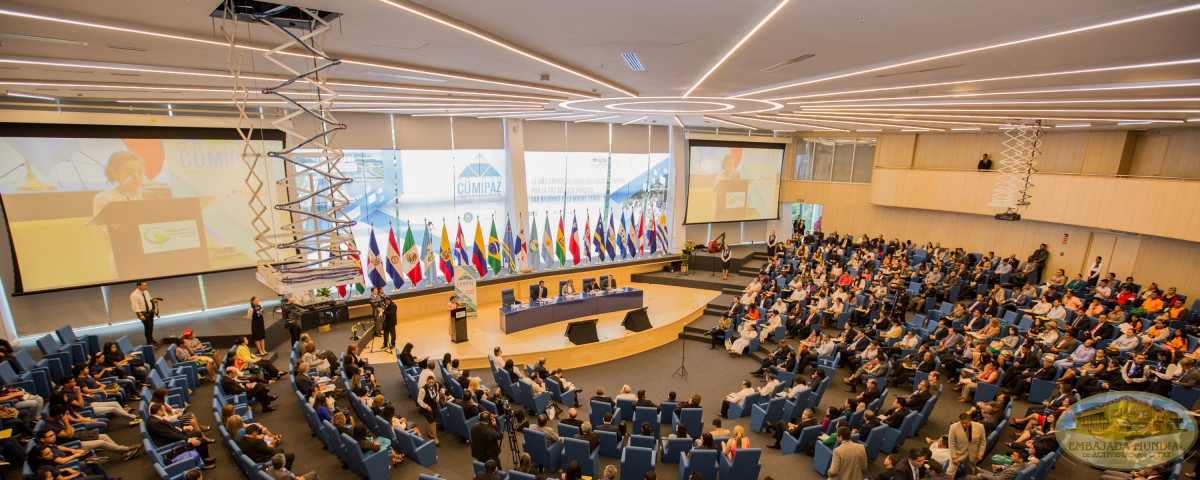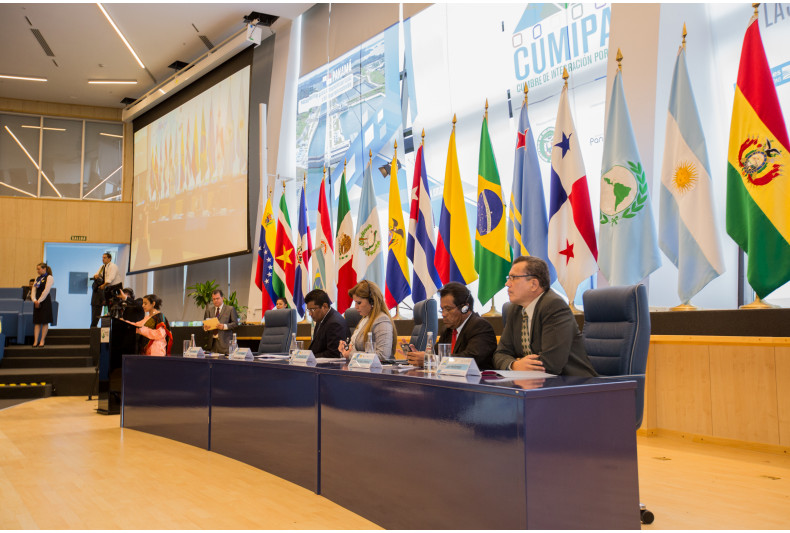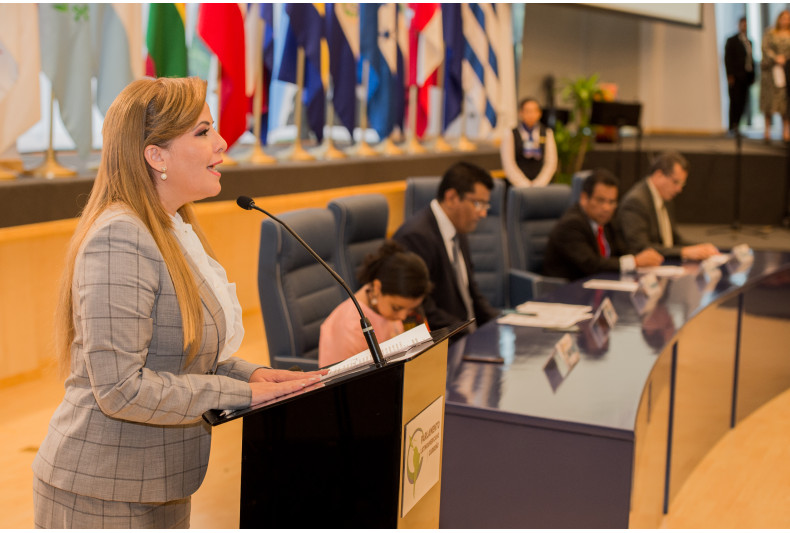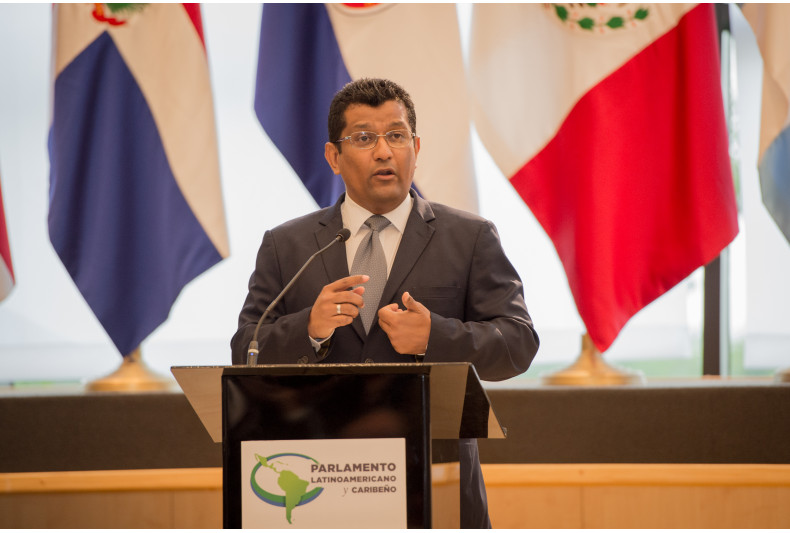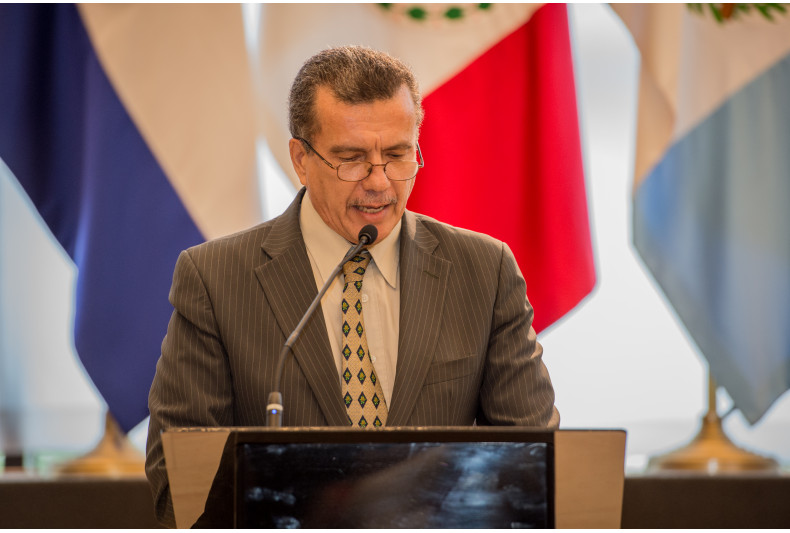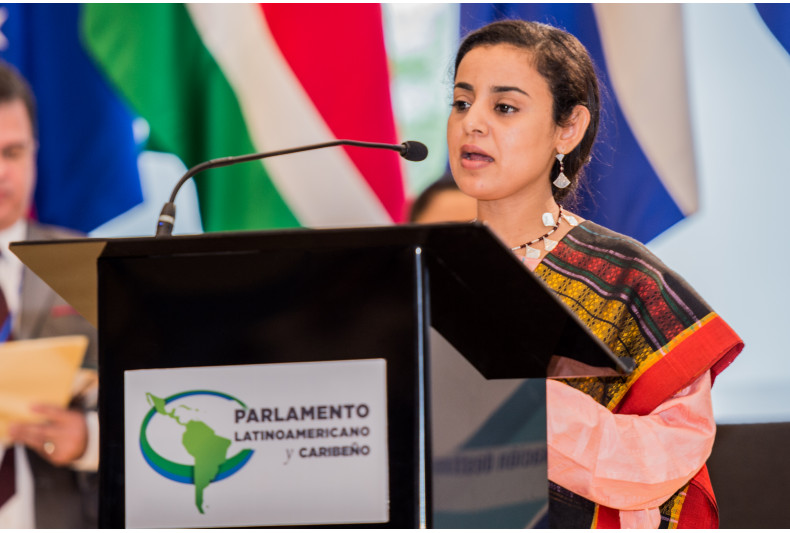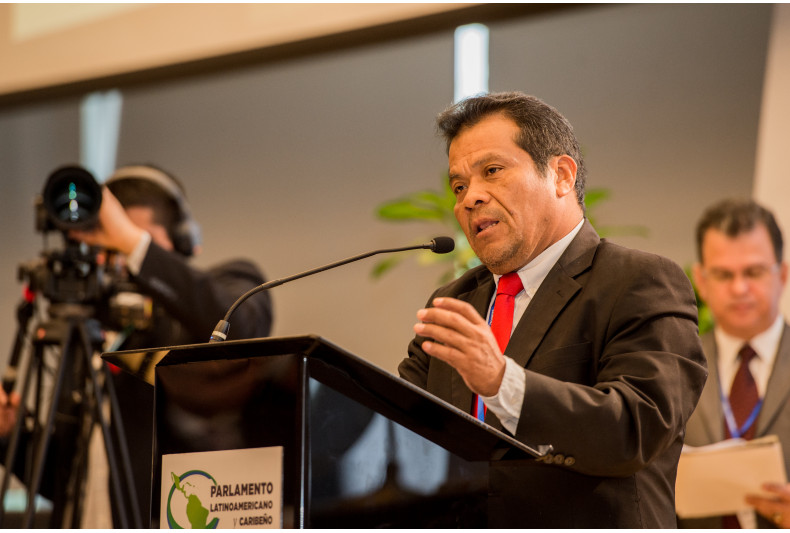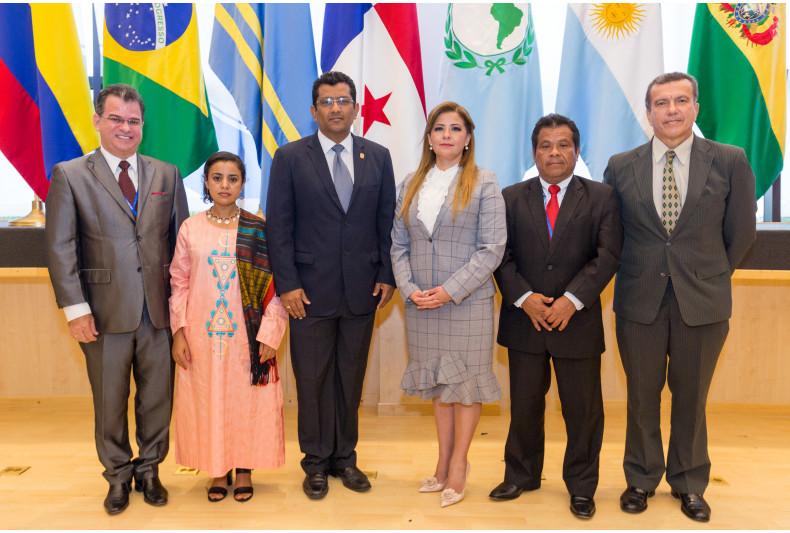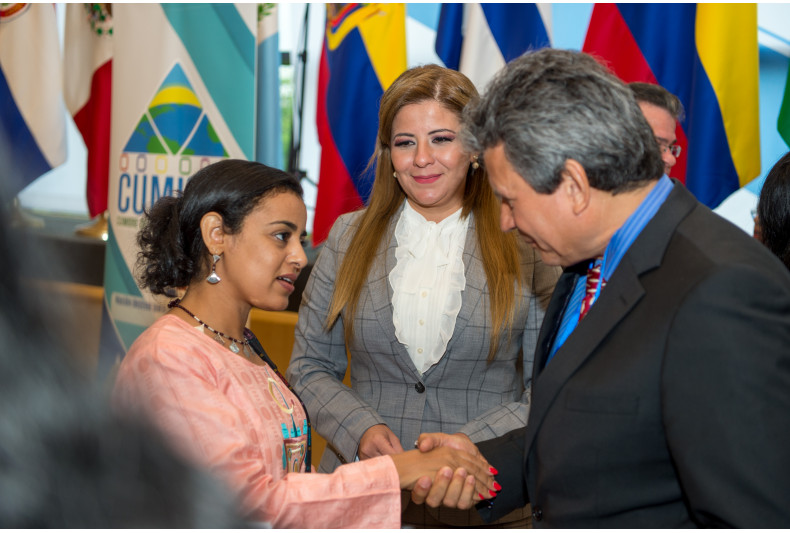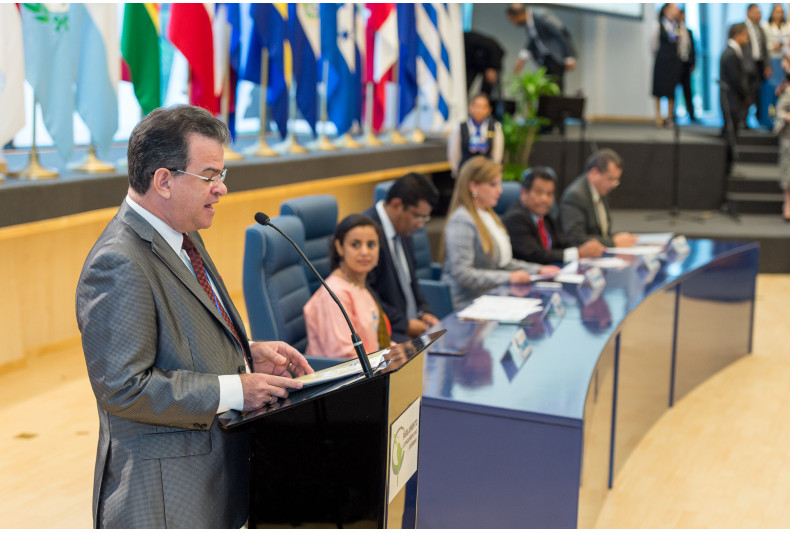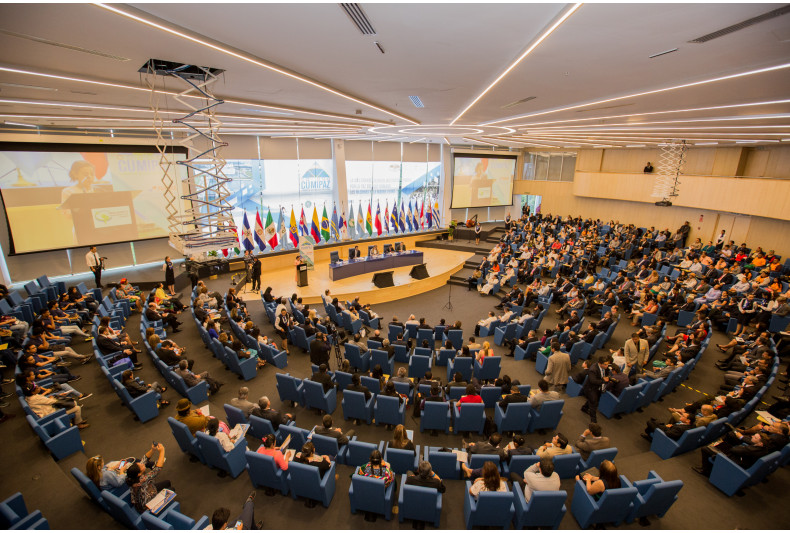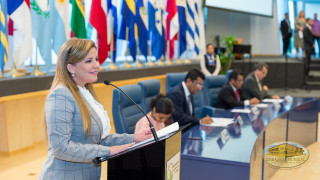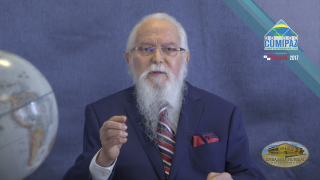World-wide work for the preservation of life begins
See GalleryProposals based on indigenous scientific, technological, and ancestral knowledge
CUMIPAZ 2017 began its activities with the Session: Science for the preservation of the life of Mother Earth and of the human being, in the hemicycle of the Latin American Parliament, in Panama City, Panama.
Scientists and researchers, academic and political authorities, indigenous leaders, professionals in the areas of health, environmental management, engineering, ecology, and green technologies, from different countries, gathered for the working day.
This session is a new area that the Summit presents to integrate, synchronize, and promote alternative knowledge of indigenous scientific, technological, and ancestral knowledge based on universal principles and values, human rights, and Mother Earth.
The proposals focus on generating actions applied to the fundamental pillars of society and firm commitments of the actors, to achieve integral peace, happiness and the preservation of life.
The day is developed through six working tables, with specific themes surrounding the central topic; at the end, each table delivers a document with the contributions presented that will be included in the declaration of the Summit.
Session Opening Act
With a message from the executive president of the Global Embassy of Activists for Peace (GEAP), William Soto Santiago, the opening ceremony of the session began. "Articulating efforts, generating synergies, combining efforts, we will achieve a better world," he assured.
Gabriela Lara, general director of the GEAP, thanked the Government of Panama for its institutional support, through the Ministry of Foreign Affairs, the Ministry of Environment, the Tourism Authority, and the Legislative Assembly. She also thanked all panelists and guests for their participation.
"We hope that this session will consolidate a global network for the preservation of the life of Mother Earth at the international level, where all the pillars and actors of society participate," said Lara.
In the opening act, Emilio Sempris, minister of Environment of Panama, was present, who spoke about the adverse effects of climate change and the actions of the States regarding this phenomenon.
Mariam Wallet, president of the 16th UN Permanent Forum on Indigenous Peoples, referred specifically to the document of the indigenous and minority peoples on the care for the environment.
In his participation, Leo Heileman, director of UN Environment for Latin America and the Caribbean, highlighted the importance of reflecting and discussing the topics related to the environment, as determining actions for the future. He commented with regards to the participation of the UN Environment at the Summit and indicated that the event is a sign of the will to meet and reunite with nature.
The Deputy Minister of Indigenous Affairs of Panama, Feliciano Jiménez, spoke on behalf of the indigenous peoples of the country, highlighting the commitment that should exist in society to the preservation of the Earth and of human beings.
Work Topics
Among the issues raised for analysis and discussion is to involve the governmental and non-governmental sectors in the commitment to indigenous science, technology, and ancestral knowledge.
Also, preservation of the ecological balance of Mother Earth, new proposals to curb the impact of climate change, scientific contributions for the preservation of human life, the quality and responsible production of food to ensure life.
